Search Results
Showing results 261 to 280 of 537

Salt Water Revival
Source Institutions
In this outdoor activity, learners visit the intertidal zone of a rocky coastal site well populated with marine organisms.

Differing Densities: Fresh and Salt Water
Source Institutions
In this activity, learners visualize the differences in water density and relate this to the potential consequences of increased glacial melting.

Investigating Ice Worlds
Source Institutions
In this activity about the solar system, learners use various light sources to examine ice with different components to understand how NASA studies planets and moons from space.

Launch Altitude Tracker
Source Institutions
In this activity, learners construct hand-held altitude trackers. The device is a sighting tube with a marked water level that permits measurement of the inclination of the tube.
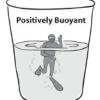
Oh Buoy!
Source Institutions
Learners work in pairs to design, construct, and test a device that exhibits positive, neutral, and negative buoyancy. They test a number of different objects in water to see if they sink or float.

Colors of Stars
Source Institutions
In this activity, learners observe colors in the flame of a burning candle to explore connections between matter, light, color and temperature -- basic concepts of matter and energy.
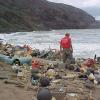
I Am/Who Has: A Litter Matching Game
Source Institutions
In this game, learners match descriptions of marine debris (shoes, batteries, paper towels, etc.) to images of these items.
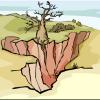
A Hole in the Ground
Source Institutions
Learners build models of sinkholes to gain an intuitive knowledge of their physical aspects.
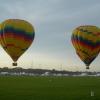
Convection Demonstration
Source Institutions
In this quick activity (located on page 2 of the PDF under GPS: Balloon Fiesta Activity), learners will see the effects of convection and understand what makes hot air balloons rise.

Go with the Flow
Source Institutions
In this quick and easy activity and/or demonstration, learners use two empty soda cans to illustrate Bernoulli's principle.
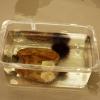
Exploration Tank
Source Institutions
This is a guide for facilitating interaction at a touch tank with marine animals. The instructions are for setting up a display in an informal science center, but could work anywhere.
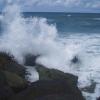
Modeling Tidal Action
Source Institutions
In this activity (Lesson 1), learners work in groups to create tide simulations.
Fish Eyes: More than Meets the Eye
Source Institutions
In this data collection and analysis activity, learners evaluate fish physiology and ecology using vision research data from Dr.
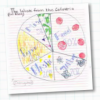
Going Green
Source Institutions
In this activity, learners conduct a waste audit and use their findings to implement a plan for reducing trash.
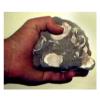
Match Rock
Source Institutions
In this activity, learners try to figure out who has their matching rock type by reading a description of their rock (no talking!).
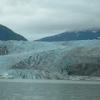
Moving Model Glacier
Source Institutions
In this goopy activity (page 2 of PDF under GPS: Glaciers Activity), learners will model glacial movement with “gak,” a white glue and liquid starch mixture.

Mountains in the Sea
Source Institutions
In this 6-7 day investigation, learners begin with an introduction to seamounts that are present in the Gulf of Alaska.

Tomb Mapping
Source Institutions
In this activity, learners examine the culture and history of the tomb site.

Pollution Patrol
Source Institutions
In this activity, learners explore how engineers design devices that can detect the presence of pollutants in the air.

The Carbon Cycle Game
Source Institutions
In this activity, learners take on the role of a carbon atom and record which reservoirs in the carbon cycle they visit.
